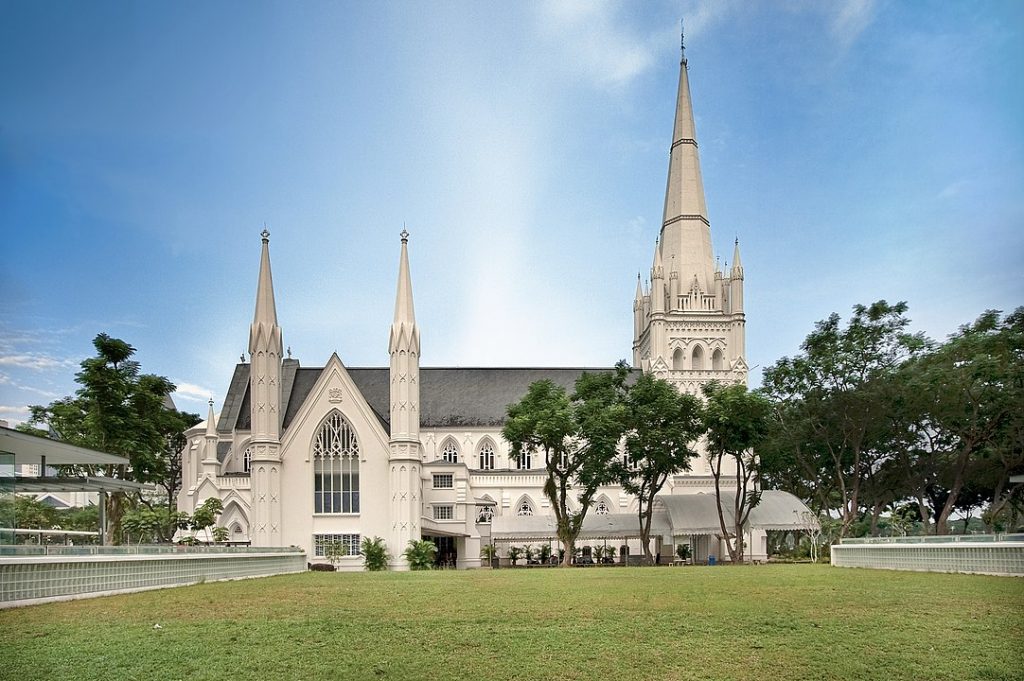Bill and I had long meetings today in Singapore at St. Andrew’s Cathedral.

We had a very profitable time with the Archbishop of the Province of Southeast Asia (CPSEA), Bolly Lapok from Kuching, Malaysia, Keith X who convenes the Economic Empowerment Task Force for the Global South archbishops, and the Reverend Kenneth, Archdeacon of the Diocese of Singapore. When it comes to the Anglican church in Southeast Asia, there’s a lot to untangle in order to understand it! That’s part of why we’re here, but another major part is simply to spend time with this part of our church, build relationships, and explore opportunities for partnership. All that happened, and for this post, I’ll simply put into words how the Anglican church here is structured, with a couple of thoughts.
The total number of Anglicans in the province numbers towards 300,000 people, with the overwhelming majority of them residing in Malaysia, around 270,000. The CPSEA has four bishops overseeing four dioceses covering 9 countries.
- The Diocese of Singapore includes Singapore and six deaneries, each led by a Dean: Cambodia, Indonesia, Laos, Nepal, Thailand, and Vietnam.
- The Diocese of Kuching covers east Malaysia and includes Brunei. Bolly Lapok is not only the Archbishop of the province but also the Bishop of Kuching.
- The Diocese of Sabah covers the northern part of the island of Borneo and is part of Malaysia.
- The Diocese of West Malaysia covers, well, West Malaysia, and is also divided into archdeaconries.
The Diocese of Singapore is quite wealthy and looks for partnership in ways that do not involve merely being the recipient of economic support. At the same time, they serve as an important conduit for resources that flow to churches in their own province, and even other provinces in the region, like Myanmar. They’ve also become a significant resource for other NGOs, like the Red Cross, for distributing funds to areas that are in need of development and relief from natural disasters.
Archbishop Bolly responded to our question, “What are the biggest challenges facing your Province?” His answers were short and understandable: the increasing challenge of militant Islamic thought, environmental degradation negatively affecting especially the poor, infrastructure building, and constant relief needs for the poor.
He also mentioned that the Anglican church in Southeast Asia faces the same challenge that we saw in Burma: The Anglican church is often perceived as the foreign religion of the conquerors, the British colonialists. Throughout the province, the Anglicans are experimenting and trying to develop ways of being Anglican that do not imply or require being English. I look forward to seeing how they continue to bring a Gospel that transcends culture into the multiple cultures of southeast Asia.
And I look forward to the ways ARDF and CPSEA can discover further partnership.
